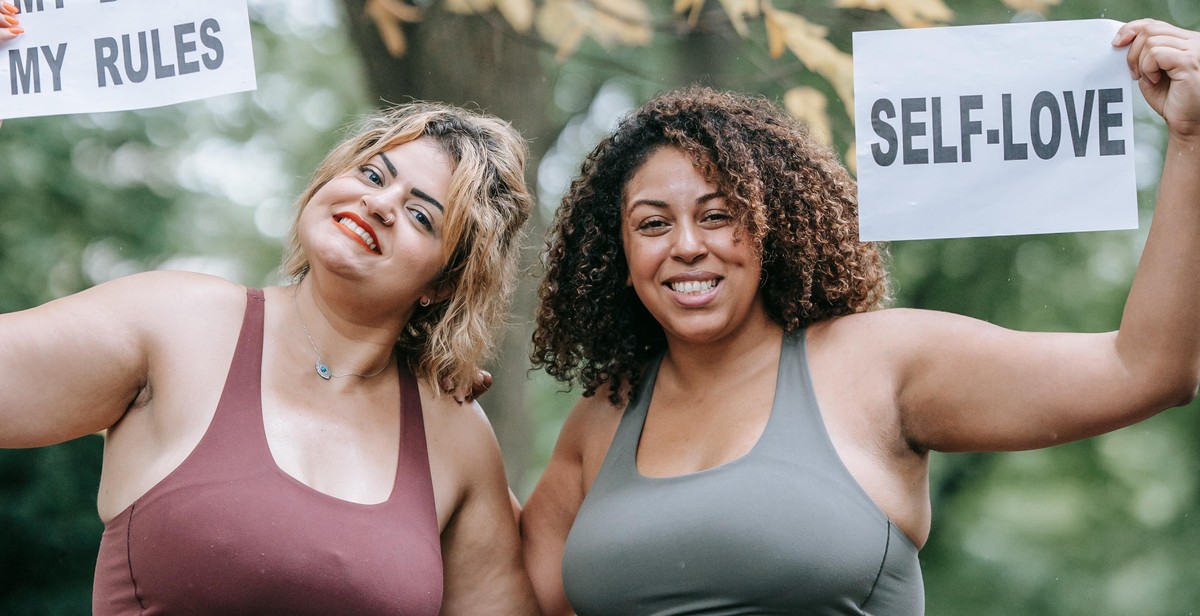Exploring the Connection Between Self-Love and Relationship Health
As a love and relationships psychology guru with years of experience, I have come to realize that the key to a healthy and fulfilling relationship is self-love. It may sound cliché, but the truth is that you cannot love someone else if you don’t love yourself first.
Many people make the mistake of seeking validation and happiness from their partners, which can lead to a toxic and codependent relationship. However, when you learn to love and accept yourself, you become more confident and secure in who you are, which translates to a healthier and stronger relationship with your partner.
The Importance of Self-Love in Relationships
Self-love is not only important for your own well-being, but it also plays a crucial role in the health of your relationship. When you have a positive relationship with yourself, you are better equipped to communicate your needs and boundaries to your partner, and you are less likely to tolerate unhealthy behaviors or settle for less than you deserve.
In this article, we will explore the connection between self-love and relationship health, and provide practical tips on how to cultivate self-love and apply it to your relationship.

What is Self-Love?
Self-love is the act of valuing and respecting yourself as a person. It is the practice of treating yourself with kindness, compassion, and forgiveness. Self-love is not selfishness, but rather a way of acknowledging your worth and taking care of yourself in a healthy way.
Self-love involves taking care of your physical, emotional, and mental well-being. It means setting boundaries, saying no when necessary, and prioritizing your needs. Self-love is also about accepting and embracing your imperfections and recognizing that they do not define you as a person.
Defining Self-Love
There are many different definitions of self-love, but at its core, it is about self-acceptance and self-care. It is a mindset and a way of life that involves treating yourself with the same kindness and compassion that you would show to others.
Self-love is not something that comes naturally to everyone. It is a skill that must be learned and practiced over time. It involves changing negative thought patterns and beliefs about yourself and replacing them with positive affirmations and self-compassion.
The Importance of Self-Love
Self-love is crucial for a healthy and fulfilling life. When you love and respect yourself, you are more likely to make decisions that are in your best interest and to pursue your goals and dreams. You are also more resilient and better equipped to handle life’s challenges.
Self-love is also essential for healthy relationships. When you love and accept yourself, you are less likely to tolerate mistreatment from others or to settle for less than you deserve. You are also more capable of giving and receiving love in a healthy way.
Overall, self-love is an essential component of a happy and fulfilling life. It is a skill that can be learned and practiced, and it is never too late to start prioritizing your own well-being and happiness.

The Connection Between Self-Love and Relationship Health
As a love and relationships psychology guru, I have seen firsthand the impact that self-love can have on the health of a relationship. When we prioritize our own self-love and care, we are better able to show up as our best selves in our romantic partnerships.
Self-Love and Healthy Boundaries
One of the key components of self-love is setting and maintaining healthy boundaries. When we love ourselves, we know our worth and we are less likely to tolerate behavior that is disrespectful or hurtful. This means that we are better equipped to communicate our needs and set boundaries that protect our emotional and physical wellbeing. In turn, this creates a healthier dynamic within the relationship, where both partners feel valued and respected.
Self-Love and Communication
Effective communication is another crucial element of a healthy relationship, and self-love can play a big role in this. When we love ourselves, we are more likely to communicate in a clear and open way, without fear of judgment or rejection. This allows us to express ourselves honestly and authentically, which can foster deeper intimacy and connection with our partner.
Self-Love and Trust
Trust is essential for any relationship to thrive, and self-love can help to cultivate this trust. When we love and trust ourselves, we are better able to trust our partner and the relationship as a whole. This means that we are less likely to engage in behaviors that undermine trust, such as jealousy or controlling behavior. Instead, we are able to approach the relationship with a sense of security and confidence.
Self-Love and Personal Growth
Finally, self-love can also facilitate personal growth, which can be beneficial for both ourselves and our relationship. When we prioritize our own growth and development, we are better able to bring our best selves to the relationship. This might mean pursuing our passions, working on our personal goals, or engaging in self-reflection and introspection. By investing in ourselves in this way, we become more fulfilled and satisfied individuals, which can only enhance our relationship.
| Self-Love and Relationship Health | |
|---|---|
| Healthy Boundaries | Clear communication of needs and respect for emotional and physical wellbeing |
| Communication | Open and honest expression of thoughts and feelings |
| Trust | Greater sense of security and confidence in the relationship |
| Personal Growth | Fulfillment and satisfaction as individuals, enhancing the relationship |
Overall, the connection between self-love and relationship health is clear. By prioritizing our own self-love and care, we are better able to show up as our best selves in our romantic partnerships. This can lead to deeper intimacy, greater trust and respect, and a more fulfilling and satisfying relationship.

Practicing Self-Love
Self-love is an essential aspect of maintaining a healthy relationship with oneself and others. It involves taking care of oneself, being kind to oneself, and accepting oneself for who they are. Practicing self-love can help improve one’s mental and emotional well-being and enhance the quality of their relationships.
Self-Care
Self-care is an important aspect of self-love. It involves taking care of one’s physical, emotional, and mental health. Self-care activities may include getting enough rest, exercising regularly, eating healthy, and engaging in activities that bring joy and fulfillment.
When one practices self-care, they are showing themselves love and compassion. It helps them feel good about themselves and boosts their self-confidence.
Positive Self-Talk
Positive self-talk is another critical component of self-love. It involves speaking kindly to oneself and focusing on positive affirmations. Instead of criticizing oneself, one can choose to focus on their strengths and achievements.
Positive self-talk can help improve one’s self-esteem and self-worth. It also helps one develop a positive outlook on life, which can enhance their relationships.
Mindfulness and Meditation
Mindfulness and meditation are practices that can help one cultivate self-love. Mindfulness involves being present in the moment and focusing on one’s thoughts and feelings. Meditation, on the other hand, involves quieting the mind and focusing on one’s breath.
Both practices can help one develop a deeper understanding of themselves and their emotions. They can also help reduce stress and anxiety, which can enhance one’s overall well-being.
Conclusion
Practicing self-love is essential for maintaining a healthy relationship with oneself and others. It involves taking care of oneself, speaking kindly to oneself, and cultivating mindfulness and meditation practices. By practicing self-love, one can improve their mental and emotional well-being and enhance the quality of their relationships.

Conclusion
After exploring the connection between self-love and relationship health, it is clear that there is a significant correlation between the two. When we love and accept ourselves, we are more likely to attract and maintain healthy relationships. Self-love allows us to set boundaries, communicate effectively, and prioritize our own needs and well-being.
On the other hand, when we lack self-love, we may find ourselves in toxic or codependent relationships, constantly seeking validation from others, and neglecting our own needs. This can lead to emotional pain, stress, and even physical health issues.
It is important to note that self-love is not a destination but a journey. It takes time, patience, and effort to cultivate a healthy relationship with ourselves. However, the benefits are worth it. By prioritizing our own self-love, we can improve our mental and emotional health, enhance our relationships, and ultimately live a more fulfilling life.
Tips for Cultivating Self-Love
- Practice self-care regularly
- Speak kindly to yourself
- Set boundaries and prioritize your needs
- Acknowledge and accept your flaws
- Practice forgiveness towards yourself and others
Remember, self-love is not selfish. It is necessary for our own well-being and the health of our relationships. By prioritizing our own self-love, we can create a positive ripple effect in all areas of our lives.
